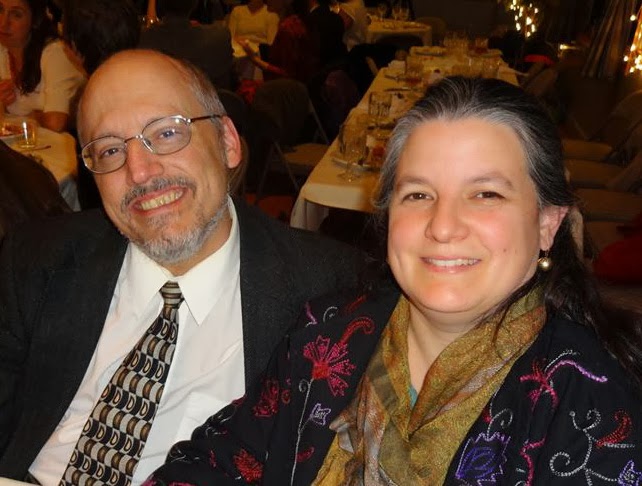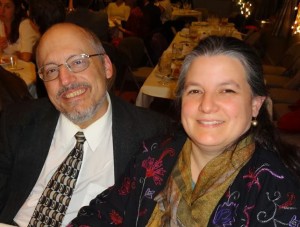3 Lessons and 2 Tips is a series of interviews in which some of my favorite people (and probably some of yours) share three lessons they’ve learned by being married, plus two tips for single people.
This edition features Dan Brennan, a blogger and author of Sacred Unions, Sacred Passions: Engaging the Mystery of Friendship Between Men and Women. Grateful he took the time to share three lessons he learned in marriage and two tips for single people:
AS: How did you meet your wife?
DB: I went to visit a friend who had begun her freshman year in a college three hundred miles from home. She introduced me to her friend, Sheila, who was a Christian teaching mathematics at the college. We met on Saturday, February 21, 1981. I was a taxi driver at the time with three college credits to my name. Sheila was on the verge of getting her doctorate. We were married on October 17, 1981.
AS: What’s the first lesson you’ve learned in marriage?
DB: Learn to cherish the beauty in your spouse and your marriage. Don’t get distracted by how-to manuals or roles but learn to cherish the presence of God revealing himself through the beauty of your spouse and your marriage. Learn to see where beauty dwells in your relationship and in your spouse. What keeps a marriage flourishing is learning to nurture a deep attraction in your spouse beyond the romantic intensity stage. Embracing beauty in your spouse and marriage through the years after you been together means you will enjoy the deep pleasure of each other’s presence years after the romantic intensity has faded.
AS: And a second lesson?
DB: Learn to cherish the friendship of marriage. We all know about the challenge of romantic passion diminishing. Nurturing an ongoing friendship with your spouse is not the same thing as trying to keep the romantic passion alive. Learn to cherish your spouse as your friend and you’ll go through seasons of passion and seasons of solid togetherness. Cherishing your spouse as a friend means you learn to delight in the other as you share life together. It is a seasoned orientation of tenderness, affection, and reverence toward our spouse as a friend. Seeing our spouses as our friend means we will learn to cherish someone who is similar to us and different from us.
AS: And a third lesson?
DB: Learn to tolerate misattunements through change and difference. Starry-eyed newlyweds tend to believe they know each other enough to stay married forever. But all encounter change, growth, and difference as they journey together as a marital couple. There are going to be misattunements where we long for communion with our spouse on a specific issue (political, spiritual, and so on) that means much to us and our spouse will not be able to meet us there. Cherishing beauty and friendship will go a long way in helping us tolerate the misattunements we are going to encounter.
AS: What’s one tip for readers who are single?
DB: Learn to savor and cherish beauty in your present life. Learn to receive God’s beauty and delight in you through the sacraments, friendships, family, community, and vocation. Deep beauty (which is found in God’s presence) is not something you have to wait to experience.
AS: And a second tip?
DB: Learn to cherish your friends now. It’s a virtue that teaches you how to relish and treasure people who are similar to you and different from you. Do not buy into the line that cherishing is for romantic couples only. Cherish your friends. You will discover that cherishing is something you can experience before marriage and within marriage.
– – – –
Connect with Dan: Click here to visit his blog.






